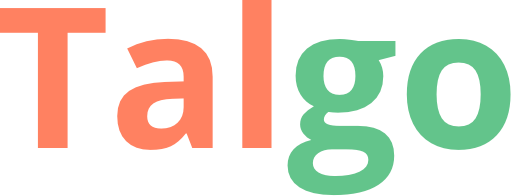Role and Definition of a Staffing Agency:
- An interface between employers and candidates
- Expertise in targeted recruitment
- A solution for temporary or permanent hiring
- An HR partner for SMEs and large companies
- A valuable resource for job seekers
Different Types of Staffing Agencies
- Temporary staffing agencies
- Permanent placement agencies
- Agencies specialized by industry
- Generalist agencies
- Executive search firms (headhunters)
- International recruitment firms
How a Staffing Agency Works
- Step 1: Analysis of the company’s needs
- Step 2: Candidate search and preselection
- Step 3: Interviews and skills assessment
- Step 4: Presentation of qualified profiles
- Step 5: Post-hiring follow-up
Use of Technological Tools (ATS, Psychometric Tests)
Benefits for Employers:
- Time savings in the recruitment process
- Access to a pool of qualified talent
- Reduced hiring risks
- Personalized support
- Outsourced recruitment process
- Fast hiring for urgent mandates
Benefits for Job Seekers:
- Access to unpublished job opportunities
- Guidance in the job search
- Coaching and interview preparation
- Temporary roles leading to permanent positions
- Opportunities across different industries
- Valuable experience for the resume
Current Challenges in Staffing:
- Shortage of qualified labor
- Digitization of recruitment processes
- Growing professional mobility
- Inclusive and equitable recruitment
- Remote work and flexibility
- Talent retention
Differences Between Staffing Agencies and Recruitment Firms:
- Duration and nature of the mandate
- Type of client-candidate relationship
- Talent search methods
- Cost of services
- Levels of positions targeted
Sectors Served by Staffing Agencies:
- Information Technology (IT)
- Insurance and Finance
- Healthcare and Social Services
- Manufacturing Industry
- Logistics and Transportation
- Construction and Skilled Trades
- Administration and Office Support
- Sales and Marketing
- Human Resources
- Legal
Staffing Agency Fees:
- Commission-based billing model
- Paid by the company, not the candidate
- Fixed fees or percentage of annual salary
- Guarantees in case of early departure
- Transparent pricing
How to Choose a Good Staffing Agency?
- Check industry specialization
- Review client feedback and testimonials
- Evaluate process transparency
- Compare offered guarantees
- Assess responsiveness and communication
- Ensure compliance with labor laws
Common Mistakes Employers Should Avoid:
- Not clearly defining hiring needs
- Delaying communication with the agency
- Ignoring the agency’s advice
- Choosing solely based on cost
- Failing to involve internal teams
Common Mistakes Job Seekers Should Avoid
- Neglecting the relationship with the recruiter
- Refusing temporary opportunities
- Not updating the resume
- Failing to prepare properly for interviews
- Being too rigid about work conditions
Regulation and Legal Framework
- Provincial legislation (e.g., CNESST in Quebec)
- Professional ethical standards
- Confidentiality and data protection
- Transparency obligations toward candidates
- Regulation of placement fees
Differences Between Private Placement and Public Services
- Public employment services (e.g., Services Québec)
- Private staffing agencies
- Different approaches and resources
- Combined benefits of both options
How Agencies Are Going Digital
- Use of ATS (Applicant Tracking Systems)
- Algorithmic CV matching
- Video interviews and online testing
- Sourcing via LinkedIn, Indeed, and other platforms
- Integration of artificial intelligence
The Strategic Role of Staffing in Business Growth
- Hiring the right profiles to grow faster
- Maintaining quality customer service
- Adjusting staff levels to economic cycles
- Managing seasonality or specific projects
- Developing employer branding
Case Studies (Fictitious Examples)
- An industrial SME finds a technician in 72 hours
- An IT firm fills 5 positions with one agency
- An insurance company reduces hiring time by 40%
- A career-switching candidate successfully placed in a new industry
Client and Candidate Testimonials
- Company testimonial: fast-growing SME
- Candidate testimonial: back to the job market
- HR Director testimonial: significant time savings
- Consultant testimonial: human and proactive support
The Evolution of the Staffing Market
- More competitive market
- Rising demand for specialized profiles
- Growing importance of HR marketing
- New expectations from younger generations
- Strong growth in international recruitment
Conclusion
Using a staffing agency is a smart strategy for companies that want to speed up their recruitment process, reduce hiring risks, and ensure candidate quality. For job seekers, it’s a gateway to professional opportunities suited to their profile and ambitions.
In short, a staffing agency is much more than a simple intermediary: it is a trusted partner in a rapidly changing job market.

